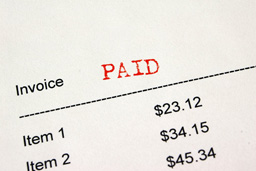The Credit Bureau Changes
Hurt or Help?
Not long ago, I had posted on this blog a note on the changes coming to the FICO credit score created and distributed(sold) to by Fair Issac.
Knowing your credit score is very important as it impacts mortgage rates, car loans, credit card loans, insurance rates and so much more. The changes came as a result of consumer groups and the Consumer Financial Protection Bureau(newly created after the fiasco in 2008) put pressure on Fair Issac.
The complaint, addressed in the changes, is that medical debt, collection debt paid, and the practice of not using credit heavily should not weight so heavily on an individuals credit score.
You will see in the article below that the changes have been made. You should be doing hand stands if your credit score was hampered by any of these causes if it is true that your credit score took a 25 point improvement(i.e. 650 to 675) with the change.
Such a bounce will definitely change your credit costs in the future and just may help you buy that car or house that you were hoping to buy in 2014.
No doubt, as with most credit related items, time will help that score to rise even further!!!!
Don't hurt yourself doing the hand stand!!!
Love your thoughts! Did you benefit???
|
|
FICO Changes Score Calculations: Will Your Score Rise?
A change in the way the popular FICO credit score is calculated could boost your score if:
- You've settled past debts with a collection agency.
- You have unpaid medical bills.
- Your credit is thin because you're just starting out or you're a retiree who no longer uses a lot of credit.
Fair Isaac, the company that sells the FICO credit score to mortgage lenders, auto lenders, credit card companies and banks, says it’s changing its formula to give less importance to unpaid medical bills and debts that consumers settled with collection agencies.
 In general, the higher your credit score, the less interest you pay when you borrow money to buy a home or a car, or to pay via a credit card. If your score drops too low, you may not be able to get a loan or a credit card.
Here’s what will change starting this fall:
- If your medical debt is the only unpaid bill on your credit report: Your score could rise by about 25 points.
- If your debt was sold to a collection agency and you then paid it: That won’t lower your FICO score.
- If you don't use credit much: Fair Issac will use other data, like rent payments, to bolster the accuracy of your score.
Fair Issac made the change after a Consumer Financial Protection Bureau report argued that medical debt isn't a strong indicator that a consumer won’t pay other types of debt.
When your credit score rises, chances are you’ll first see an improvement in the rates you’re charged for credit cards, auto loans and personal loans.
Your mortgage rate may take longer to come down because most lenders follow Fannie Mae and Freddie Mac’s lending guidelines. Those guidelines tell lenders to use a very specific mortgage credit score rather than the latest version of the FICO score.
Currently, the average Fannie Mae borrower has a FICO of 744, while the average Freddie Mac borrower has a 749.
|
|
 In general, the higher your credit score, the less interest you pay when you borrow money to buy a home or a car, or to pay via a credit card. If your score drops too low, you may not be able to get a loan or a credit card.
In general, the higher your credit score, the less interest you pay when you borrow money to buy a home or a car, or to pay via a credit card. If your score drops too low, you may not be able to get a loan or a credit card.
No comments:
Post a Comment